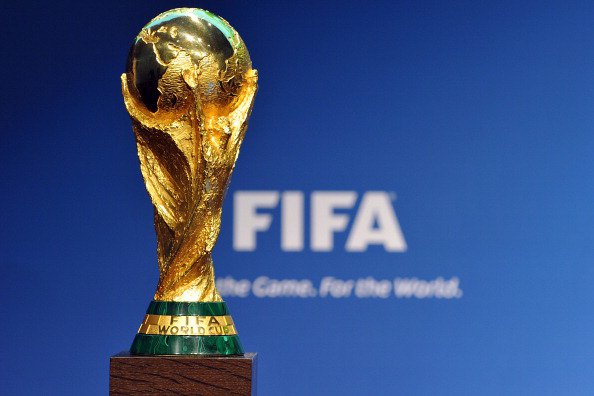The world of football took a dramatic turn as FIFA announced Saudi Arabia as the host for the 2034 FIFA World Cup. The decision, made during an Extraordinary FIFA Congress meeting, was met with celebration in Riyadh and sharp criticism across the globe. With no rival bids, Saudi Arabia’s appointment came through acclamation, but the move has ignited debates over human rights, climate concerns, and sportswashing.
The Saudi Sports Minister, Abdulaziz bin Turki bin Faisal al Saud, hailed the announcement as a “proud day” for the kingdom, pledging to deliver an “extraordinary” tournament. However, critics see the decision as yet another chapter in FIFA’s murky relationship with authoritarian regimes, highlighting the growing trend of awarding global sporting events to nations with questionable human rights records.
Read More: British Pakistanis Call on UK Govt to Halt Transnational Repression by Pakistani State Agencies
Saudi Arabia follows in the controversial footsteps of its Gulf neighbor Qatar, which hosted the 2022 World Cup amidst global scrutiny. Like Qatar, Saudi Arabia faces accusations of using its wealth and influence to distract from its abysmal human rights record. Amnesty International and 20 other organizations condemned FIFA’s decision, calling it “reckless” and a blatant disregard for ethical considerations.
“FIFA has learned nothing from Qatar,” said Steve Cockburn, Amnesty International’s Head of Labour Rights and Sport. “This decision underscores how the organization prioritizes profit over principles, putting lives at risk.”
The Saudi Public Investment Fund has poured billions into sports, from LIV Golf to high-profile football signings, fueling allegations that the kingdom is using sports to whitewash its repression of dissent, women’s rights activists, and LGBTQ communities.
Climate Chaos and Economic Calculations
Beyond human rights, the environmental cost of Saudi Arabia’s World Cup raises alarms. The tournament will necessitate the construction of eight new stadiums and significant infrastructure upgrades in five cities, including the futuristic project Neom. The desert climate will likely force a winter schedule, similar to Qatar, drawing criticism for the logistical and environmental challenges of hosting such a massive event in extreme conditions.
Climate activists have slammed FIFA’s disregard for sustainability, particularly in light of the 2030 World Cup’s multi-continent format, which will exacerbate travel emissions. FIFA’s vague promises to mitigate the environmental impact ring hollow in the face of these monumental challenges.
A Political Football
The decision also exposes FIFA’s flawed and opaque bidding process. The Norwegian Football Federation (NFF) openly criticized the move, calling the process “flawed and inconsistent.” Australia, the only potential competitor to Saudi Arabia, withdrew its bid, citing a lack of support. This unopposed confirmation of Saudi Arabia further fuels allegations of backroom deals and preferential treatment.
For FIFA President Gianni Infantino, this is a calculated gamble. By securing Saudi Arabia’s backing, FIFA aligns itself with a kingdom eager to reshape its global image, but at what cost? The organization’s credibility has already been battered by corruption scandals, and this latest move will only deepen skepticism about its governance.
As Saudi Arabia gears up to host the world’s most-watched sporting event, the 2034 FIFA World Cup risks becoming a symbol of how power and money trump ethics in global sports. While Riyadh celebrates its victory, the world watches with unease, questioning whether the beautiful game has been irreparably tarnished by political machinations and financial interests.














